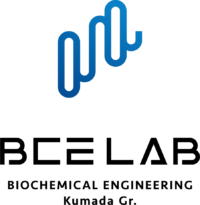ABOUT US
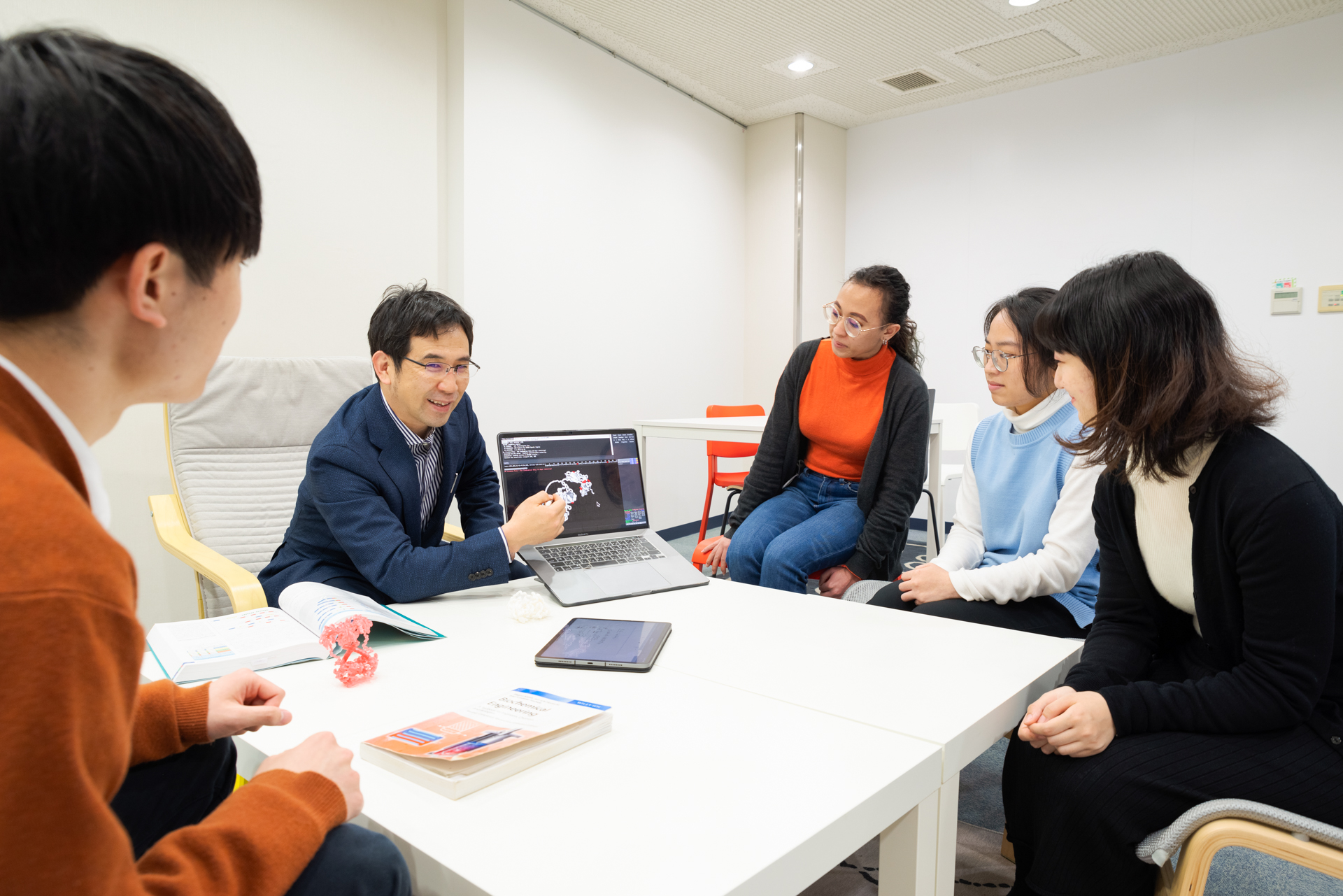
GREETING
The Biochemical Engineering Laboratory (Kumada Group) in the Department of Molecular Chemistry at Kyoto Institute of Technology is always opening the entrance for you. We always welcome visitors regarding laboratory tours, discussion for, joint researches and academic supports.
We conduct engineering researches with the goal of extracting and maximizing the “bioaffinity,” which is the ability of antibodies to recognize and bind to molecules, and contribution to human health. Prof. Kumada fully provides new and/or unique technologies as well as mindsets that he has learned at overseas. We respect the individuality of each student, and we are developing researchers and engineers who can contribute to the world while discovering and maximizing their own talents. We are very happy if you join our research group for growing up together with us!
Dr. Yoichi Kumada
My Dream is “to create a world in which no one suffers from illness. If we can create a world in which all people can easily check their own illness and health status like a thermometer and choose the best medical treatment for their symptoms, I believe that life itself will be more fulfilling as people focus on living a healthy and self-directed life. Furthermore, even in the event of a pandemic like the coronavirus, if we can develop testing agent and treatment drugs quickly, more lives can be saved.
I was fascinated by antibodies when I was a student, and it has been more than 20 years since then. I have been researching the simple theme of “immobilization of antibodies” from various angles. During this time, some researches have made great progress, while others have been slow to move forward. Of course, there have been times when I have felt like giving up many times along the way. However, now that more than 20 years have passed, I realize that I am very glad that I have been able to study one major research theme from deeply many different angles.
There is a view that becomes dimly visible after longer terms of research on the same theme. In fact, there is a lot of “know-how” in this field of research that the people involved in the experiments have a firsthand sense. It is always happend that are not described in textbooks, I consider it my mission to formulate hypotheses, elucidate them academically, and share the results with the real world.
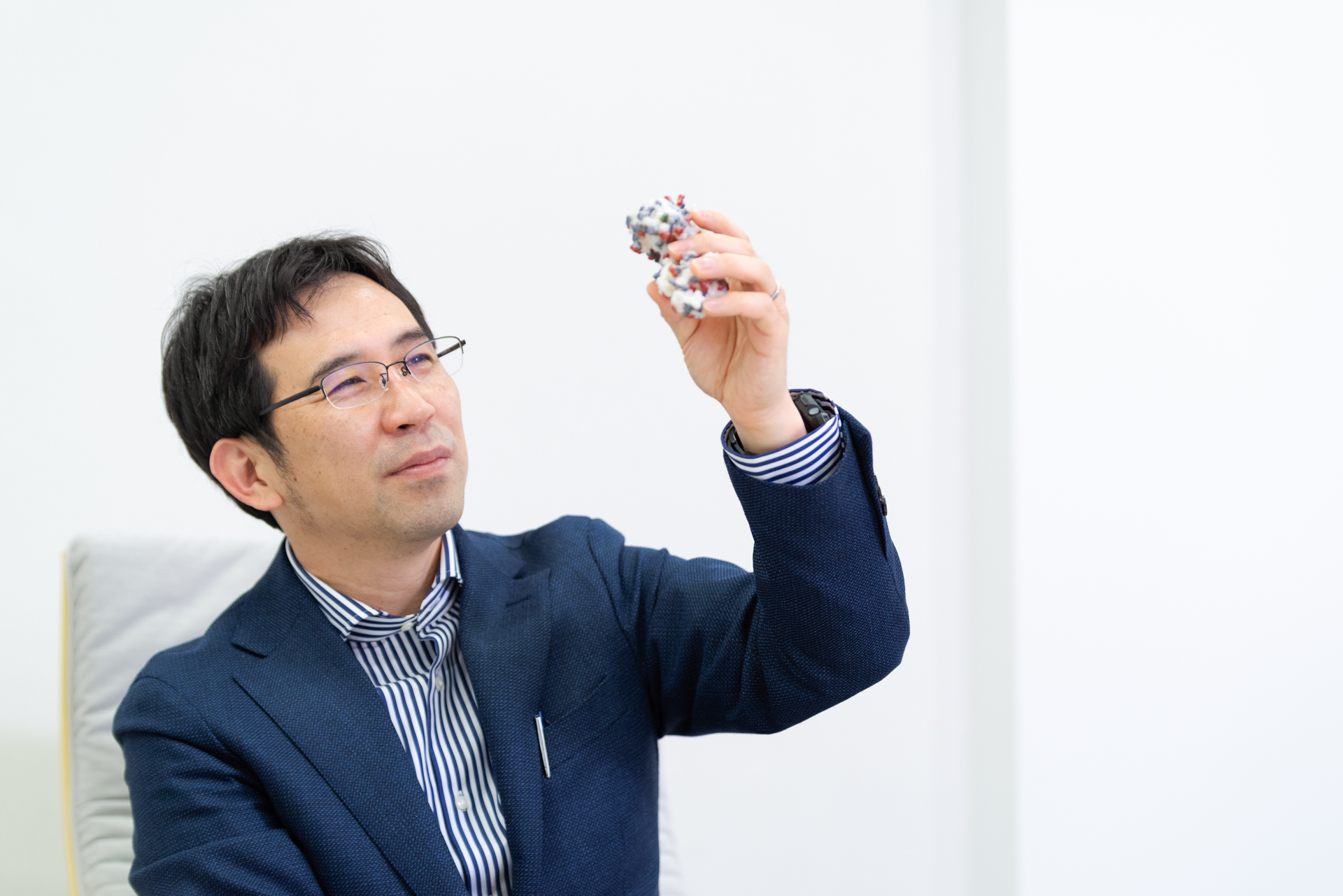
My great joy in research at the university is not actually the time that I achieve good research results. Rather, when I find a new subject or issue challenge in my research field, I am really excited. The fact that there is an issue to be studied means that there is still space where we can make a contribution to the world. And I feel very happy to devote my remaining time (soul) to solving those issues.
My research area, related to bioaffinity may be is in the very narrow in the biochemical engineering, and therefore, my impact on the world is very small. I am happy to share these issues with the students who have joined our research group and with the collaborators who are involved with us, and spend the time in trial and error and consider in an effort to find solutions.
Many things can happen in the research. When I find out that on-going issues cannot be solved with modern technology, I and our members often feel greatly depressed and stressed. At such times, I say to myself and to the members in our group, “Efforts that you have spent is doing good in the world”. Even if the results of our group’s research seem to be “failures” or “meaningless”, in the long term, they might be valuable challenges that humanity has taken on, and the experimental data world be research results are undoubtedly a treasure for humanity. In the long term, there is no good or bad. (It may sound weird, but I personally love all the challenges I have taken on so far.)
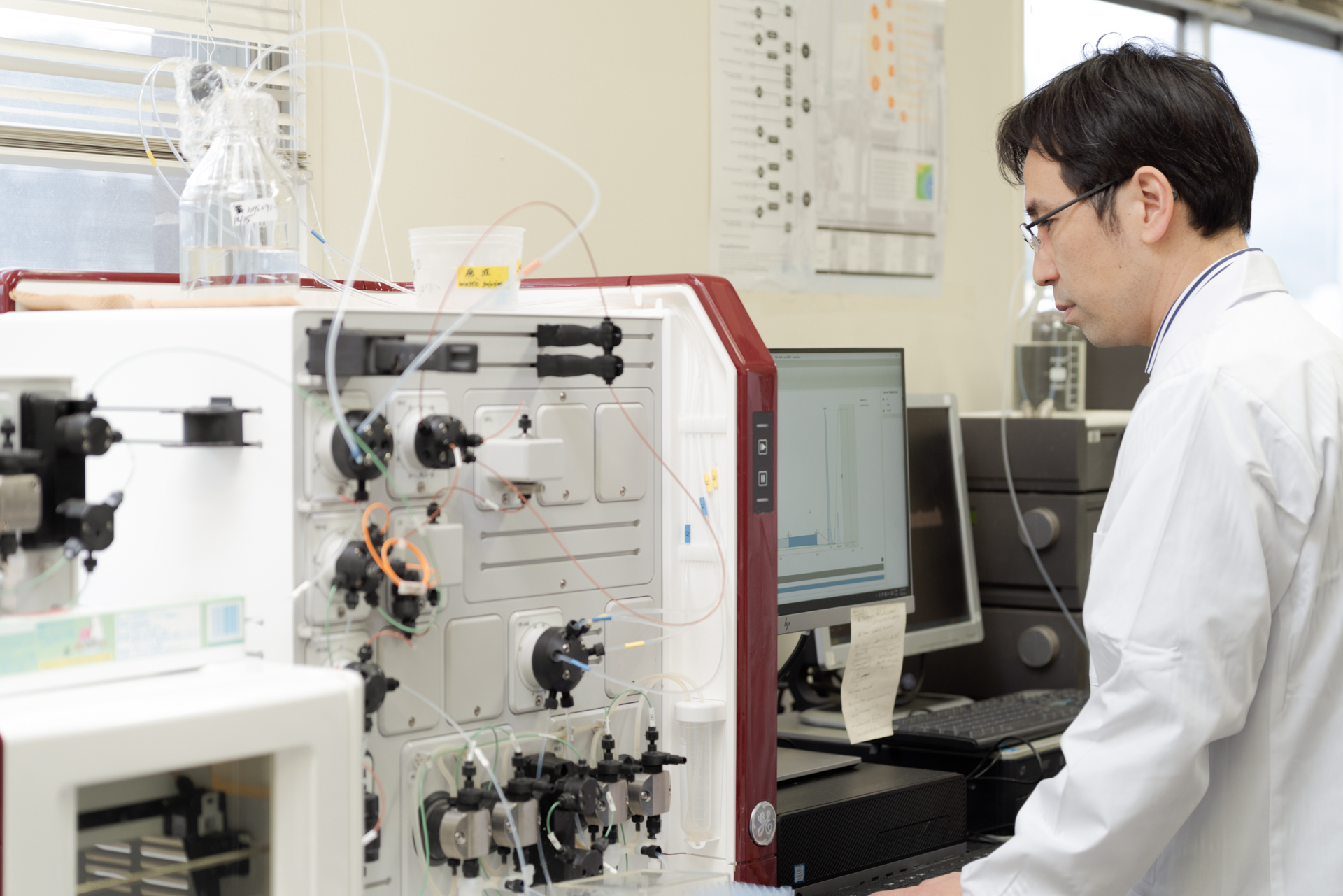
Even through our results were not evaluated at this moment, someone in a different field of expertise in another time may find it “interesting,” “highly valuable,” or “this could be useful. Even if you cannot understand the results now, one day, a breakthrough may suddenly occur. When we can have such expectations, we can say that the research we have done is a great success. What I want to say is that it is not a waste of time. If the person doing the work thinks it must be a waste, then it is a waste, but I do not think so, and I am convinced that if we keep the data, it will definitely be useful in some way. With this in mind, our group is aggressively doing to share the results as much as possible to society as “Lablogs“, the database we have obtained from our daily educational research.
Humanity has almost perished many times in the past due to natural disasters and epidemics, and has managed to overcome them and develop. I believe this is because human beings have never stopped thinking about unanswerable questions, have tried, failed, learned from their failures, and have continued to challenge themselves without ceasing. What we can challenge and contribute to the world may be small, but it is also true that our society is made up of small pieces that are connected one by one. I believe that society will only improve when each individual recognizes his or her own talents, considers his or her own role, and fulfills his or her life with passion.
If you are at all interested in the educational and research activities of our research group, please feel free to contact us.
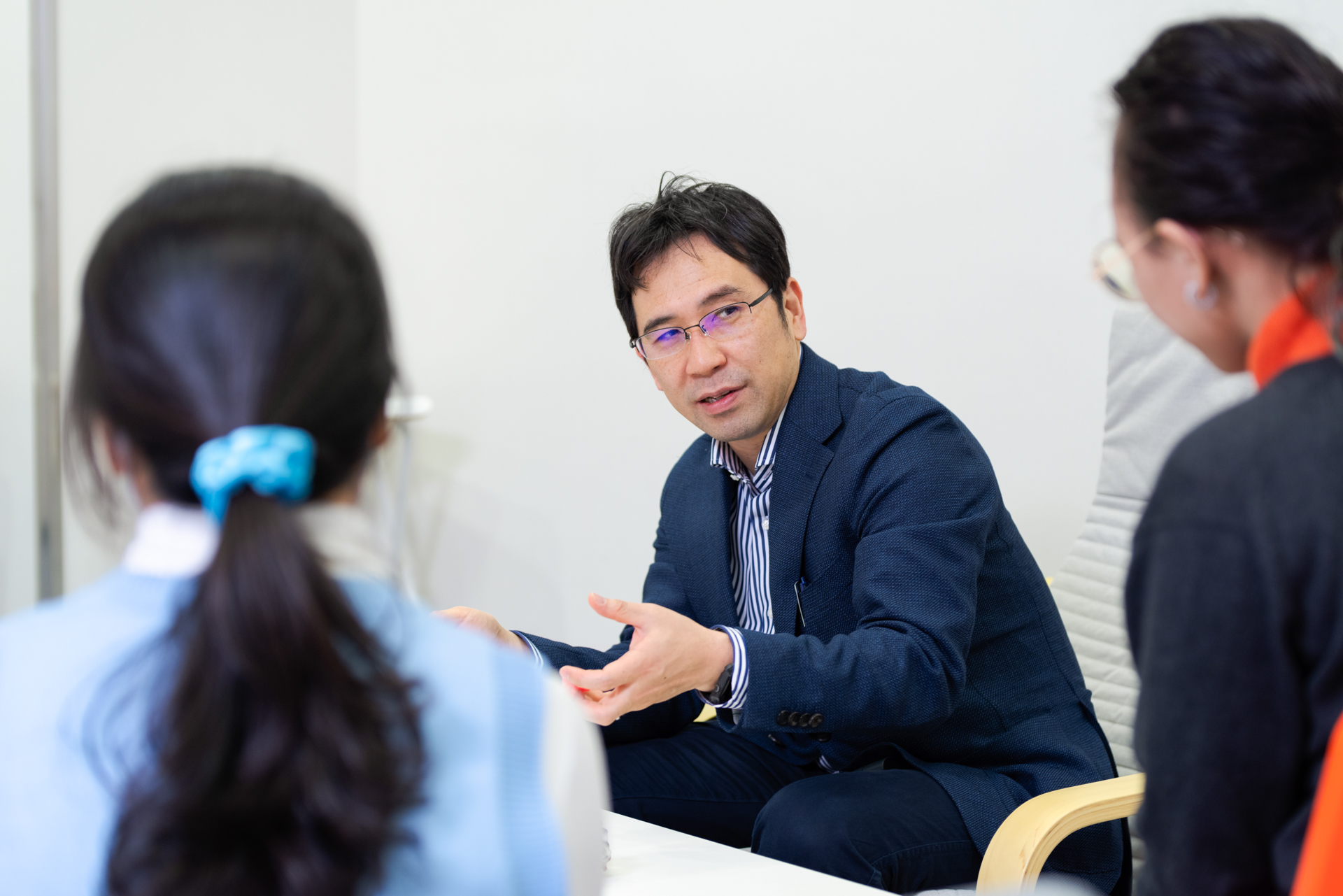
Education
- Mar. 2000 Department of Applied Chemistry, Faculty of Engineering, Ehime University Bachelor of Engineering
- Mar. 2002 Department of Applied Chemistry, Graduate School of Natural Science and Technology, Kobe University Master of Engineering
- Mar. 2005 Department of Natural Resources and Energy Science, Graduate School of Natural Science and Technology, Kobe University Doctor of Engineering
Supervisor: Dr. Shigeo Kato (Professor Emeritus, Kobe University)
Academic career
- Apr. 2005 – Feb. 2007 Japan Society for the Promotion of Science, Research Fellow(PD) (Host : Okayama University)
- Mar. 2007 – Apr. 2007 Assistant Professor, Department of Materials Science and Engineering, Kyoto Institute of Technology
- May 2007 – March 2011 Assistant Professor, Department of Materials Science and Engineering, Kyoto Institute of Technology
- Feb 2011 – Jan 2014 Assistant Professor, Department of Biomolecular Engineering, Kyoto Institute of Technology
- Feb 2014 – Present Associate Professor, Department of Molecular Chemistry, Kyoto Institute of Technology
(During this period, the department was reorganized into the Department of Biomolecular Engineering, the Department of Biomolecular Applied Chemistry, and the Department of Molecular Chemistry.)
Overseas research experiences
- 2006年 University of Natural Resources and Applied Life Science (Austria), Visiting Scholar(Prof. Alois Jungbauer)
- 2016年 University of Texas at Austin (USA), Visiting Scholar (Prof. George Georgiou)
- 2022年 Ca’ Foscari University of Venice (Italy), Visiting Scholar (Prof. Alessandro Angelini)
Awards
- YABEC Award for Best Poster Presentation(YABEC, 2004)
- Third Place Poster Award(American Electrophoresis Society, 2007)
- Outstanding Paper Award 2006, J. Chem. Eng. Japan 2006(Society for Chemical Engeneers, Japan, 2007)
- Research Encouragement Award -Tamaoki Memorial Award-(Society for Chemical Engeneers, Japan, 2008)
- Research Encouragement Award -Terui Memorial Award-(Society for Biotechnology, Japan, 2012)
LAB’s MINDSET
- Do not forget gratitude and contribution.
- Have your own opinions and commitment.
- Do not neglect the fundamentals of academia.
- Be professionalism and confident.
- Treasure is hidden in many failures.
- Investigate widely and deeply.
- Have a philosophy.
- Be independent.
- Fulfill yourself, and then, you can act for others.
- Do things as soon as you think of them, and do them all until you get tired of them.
- Embrace diversity.
- Coexist rather than compete.
- Distribute and share.
- Pay forward
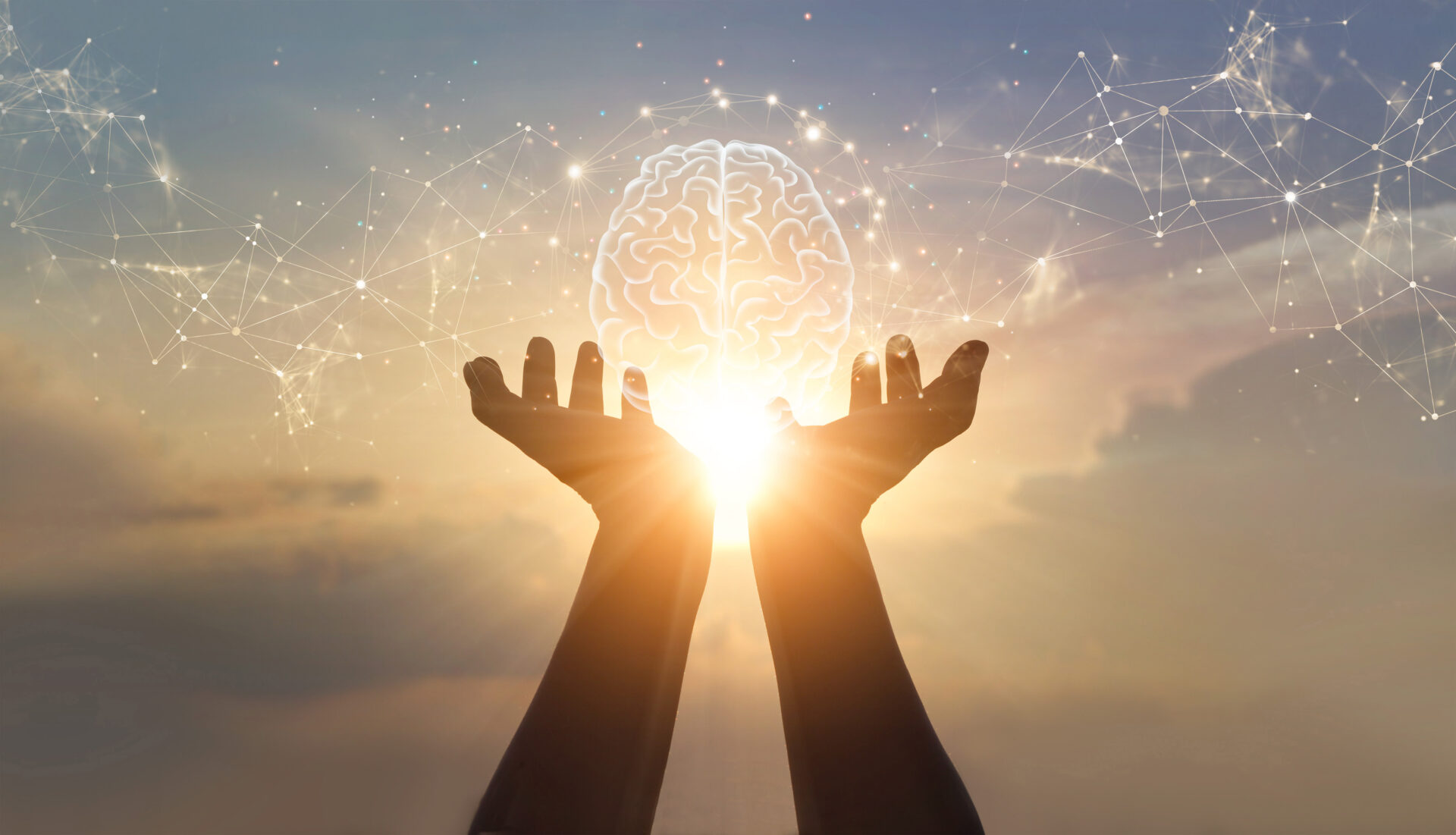
LAB’s STYLE
The features of our laboratory are listed in a Q&A format.
Decisions are made with respect to each student’s general interests and enthusiasm. On the other hand, we may (and often do) change the research theme or direction during the course depending on the desired career path, characteristics (strengths and weaknesses), and the status of the research theme. My research style is to always ask myself what we can contribute to society as a research group and what role we can play, and to do the best I can at the moment.
General information sharing and individual communication is done using Chatwork. In addition, each research group has a weekly 2-hour research report and discussion session. Individual interviews and direct guidance are also conducted depending on individual research progress and differences in environment and situation.
Of course you can. Many things come up in research life in a laboratory. Many are concerned not only about further study and employment, but also about what level of achievement is required for a bachelor’s, master’s, or doctoral degree, and what kind of social evaluation and responsibility will follow after obtaining a degree. Of course, there are also those who are concerned about their interpersonal relationships inside and outside the laboratory and with their families. In our research group, I deal with each of our members and actively work to create an environment in which they can join in a positive manner as much as possible. What I can do to support you may be small, but I hope that you will have the courage to confide in me even about small problems.
Basically, we do not have core hours, but we ask students to come to the office in the morning to ensure that they have about 8 hours a day to engage in education and research.
It is possible as long as it does not interfere with your studies. However, please avoid working during the daytime on weekdays, as there are many laboratory events. In addition, we have a system in place to support student life, including Teaching Assistants, Research Assistants, and scholarships, so we encourage you to take advantage of this system to create an environment in which you can concentrate on your education and research.
Normally, July-August is set as the study period for the graduate examination.

IDEAL CANDIDATE PROFILE
- I am interested in the content of the research.
- I could sympathize with the teaching policy of the laboratory.
- I want to propose many new ideas.
- I like discussions.
- I have passion.
- I want to conduct fundamental research.
- I am interested in engineering research.
- I want to know what Lablog is all about.
- I want to communicate with overseas researchers and foreign students.
- I am excited to see this website.

AFFILIATION
Kyoto Institute of Technology, Department of Fundamental Chemistry
Applied Chemistry Course: Functional Material Chemistry Design Course (D Course)
Department of Functional Chemistry
Department of Materials Science and Chemistry
ACCESS
Our laboratory is located in Building No. 12 on the Matsugasaki Campus of Kyoto Institute of Technology. It is conveniently accessible from Kyoto Station and the nearest train stations, so please feel free to visit us.
Kyoto Institute of Technology
Bldg. 12, 401A, 1 Matsugasaki Hashigami-cho, Sakyo-ku, Kyoto 606-0951, Japan
・8 minutes walk from Exit 1 of “Matsugasaki Station” of Kyoto city Subway Karasuma Line
・Approximately 30 minutes from Kyoto Station
・Approximately 35 minutes from Sanjo Keihan Station
CONTACT US!
Please feel free to contact us.
